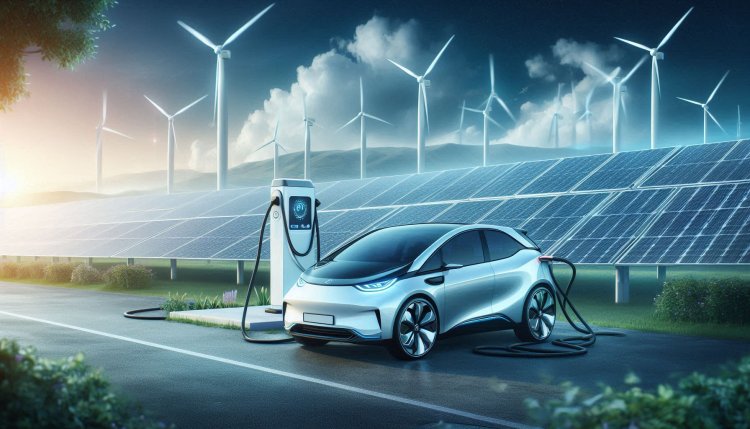Renewable Energy and the Automotive Industry
Discover how the automotive industry is embracing renewable energy sources to drive sustainability and innovation. Explore the latest trends and advancements.

Renewable Energy and the Automotive Industry
The automotive industry plays a significant role in the global economy and is a major contributor to greenhouse gas emissions. As concerns about climate change and environmental sustainability grow, there is increasing pressure on the automotive industry to reduce its carbon footprint and transition to renewable energy sources.
Renewable Energy in the Automotive Industry
The adoption of renewable energy in the automotive industry has been gaining momentum in recent years. Many automakers are investing in sustainable practices and technologies to reduce their reliance on fossil fuels and lower their environmental impact. Some of the key ways in which renewable energy is being incorporated into the automotive industry include:
- Electric Vehicles (EVs): EVs are powered by electricity stored in batteries, which can be charged using renewable energy sources such as solar or wind power. As the infrastructure for EV charging stations improves and the cost of batteries decreases, the adoption of EVs is expected to increase significantly in the coming years.
- Hydrogen Fuel Cells: Hydrogen fuel cells convert hydrogen gas into electricity to power vehicles, emitting only water vapor and heat as byproducts. While the infrastructure for hydrogen fueling stations is still limited, many automakers are investing in hydrogen fuel cell technology as a clean alternative to traditional gasoline-powered vehicles.
- Biofuels: Biofuels are derived from renewable sources such as plant materials and agricultural waste. Ethanol, for example, can be blended with gasoline to reduce carbon emissions from conventional vehicles. Biofuels offer a more sustainable alternative to fossil fuels and can help reduce greenhouse gas emissions in the transportation sector.
Benefits of Renewable Energy in the Automotive Industry
The integration of renewable energy into the automotive industry offers numerous benefits, both for the environment and for business operations. Some of the key advantages include:
- Reduced Emissions: By transitioning to renewable energy sources, automakers can significantly reduce their carbon footprint and help combat climate change. EVs and other clean technologies produce fewer greenhouse gas emissions compared to traditional gasoline-powered vehicles.
- Energy Independence: Using renewable energy sources such as solar or wind power can help reduce reliance on imported fossil fuels and provide a more stable energy supply. This can help mitigate the impact of fluctuating oil prices and geopolitical tensions on the automotive industry.
- Cost Savings: While the initial investment in renewable energy technologies may be higher, the long-term cost savings can be substantial. Switching to renewable energy sources can help reduce fuel costs, maintenance expenses, and regulatory compliance costs for automakers.
- Brand Reputation: Embracing renewable energy and sustainability can enhance the reputation of automakers and attract environmentally conscious consumers. Companies that demonstrate a commitment to environmental stewardship are likely to gain a competitive edge in the market and build customer loyalty.
Challenges and Opportunities
Despite the benefits of renewable energy, the automotive industry faces several challenges in transitioning to sustainable practices. Some of the key obstacles include:
- Infrastructure: The infrastructure for renewable energy technologies, such as EV charging stations and hydrogen fueling stations, is still developing and may not be widely available in all regions. Building a robust infrastructure network is essential to support the widespread adoption of clean energy vehicles.
- Cost: The upfront costs of renewable energy technologies, such as EVs and hydrogen fuel cells, can be higher than traditional gasoline-powered vehicles. While the costs are decreasing as technology advances, affordability remains a barrier for many consumers.
- Regulatory Environment: Government policies and regulations play a crucial role in promoting the adoption of renewable energy in the automotive industry. Incentives such as tax credits and rebates can help offset the costs of clean energy vehicles and encourage investment in sustainable technologies.
What's Your Reaction?

















